Unfortunately, joint pain and problems are a common part of getting older for both humans and our pups. While large breed dogs are more prone to joint problems than smaller dogs, any dog can suffer as they get older. Is there anything you can do to prevent joint problems from starting in the first place? The answer is yes! These 5 tips will give you a head start in preventing joint problems in your dog, or at least minimize symptoms.
#1 – Prevent joint injury
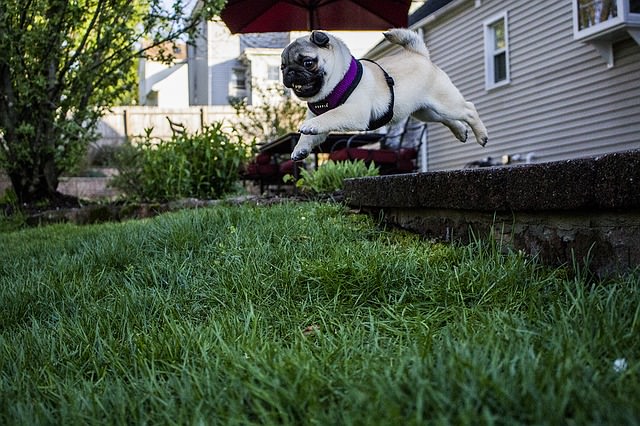
Arthritis commonly develops as the result of injury earlier in life. This can include something as simple as overexertion as a puppy. Over-exercise, jumping too high, and running too hard before a puppy has fully matured can injure the joints and lead to arthritis. You should have steps, ramps, or other methods to help your puppy get in the car or on your furniture, and play time should be supervised to prevent overexertion.
#2 – Treat injuries promptly
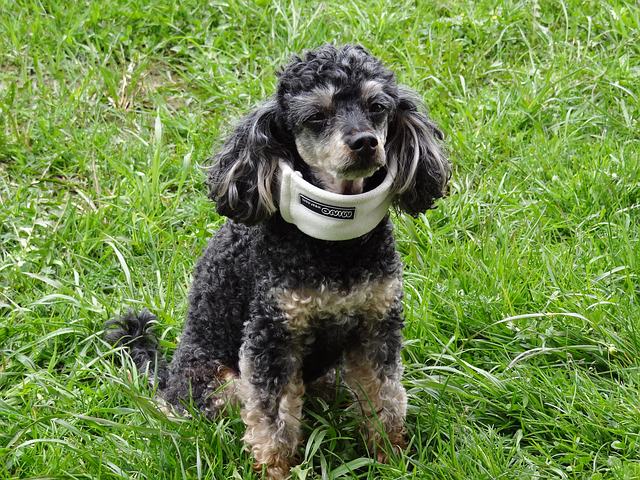
Any suspected injury should brought to the attention of a vet immediately. Even a seemingly minor injury can have long-term painful consequences if it doesn’t heal properly. Crate rest may seem like torture for an injured pet, but it may help prevent a lifetime of painful arthritis, so be sure to closely follow your vet’s instructions, no matter how sad your dog may seem to be.
#3 – Manage their weight
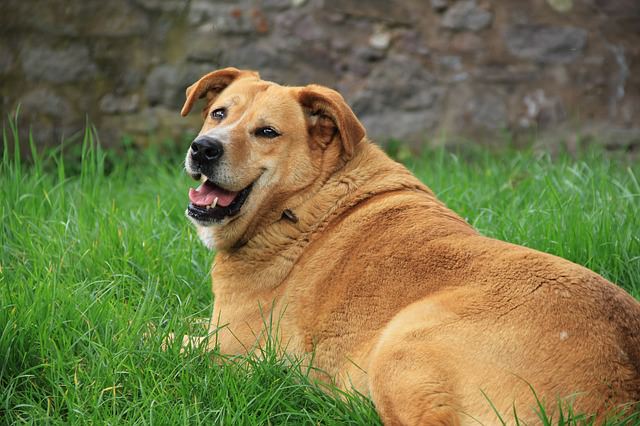
Extra weight adds more pressure to your dog’s joints, so the best way to prevent joint pain in your dog is to prevent them from becoming overweight. Even just a few extra pounds can have painful implications for your dog’s joints. While you don’t necessarily want to see your dog’s ribs, you should be able to feel them quite easily. Talk to your vet if you think your pup needs to shed a few pounds to discuss appropriate ways to help your dog manage their weight.
#4 – Keep your dog moving
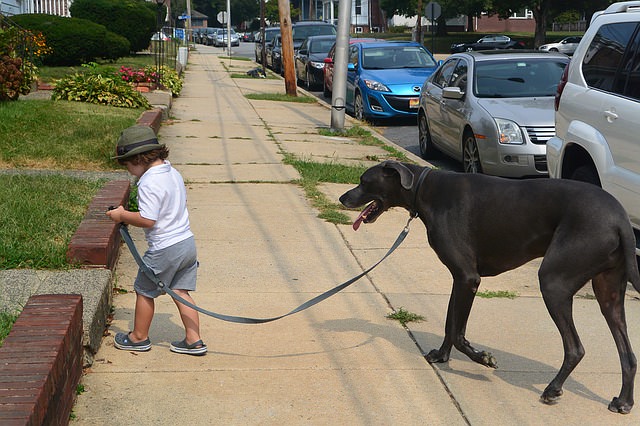
Gentle exercise such as walking can keep joints limber and healthy as well as keep your dog’s weight in a healthy range. Exercise pumps natural lubrication into joints, so while it might be tempting to let your aging dog rest, exercise can actually help loosen up your dog’s aching joints. Their joints may also stiffen after a nap, so it may help to invest in a heated dog bed or spend a few minutes massaging your dog’s muscles before your morning walk.
#5 – Feed appropriate food and consider supplements
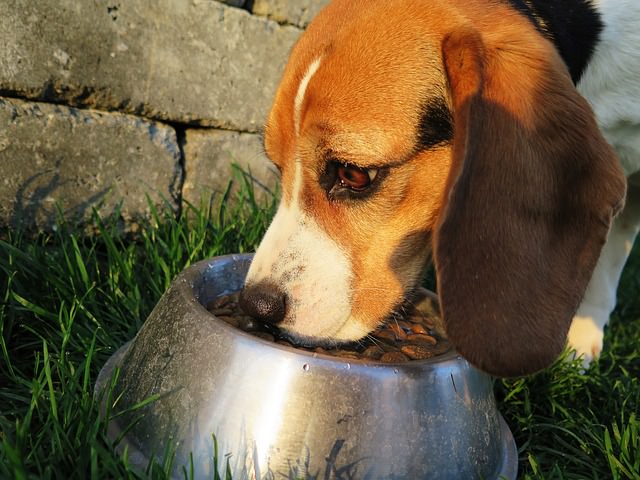
When large breed puppies grow too quickly, they can become too heavy for their immature joints. And we’ve already mentioned that obesity can lead to joint problems. It pays to research the food you feed your dog. Spending a little extra money now on a better dog food can prevent many expensive health problems down the road. Think of cheap dog food as the equivalent of a human eating entirely junk food. It may keep you alive, but it will likely cause health problems down the road. You may also want to consider adding a supplement designed for joint health to your dog’s food, especially if you have a large breed dog.
If a joint supplement makes sense for your dog, we’d encourage you to try our Advanced Canine Joint chews. Not only do we believe they are the most advanced formula available, but each purchase helps feed shelter & rescue dogs!
This isn’t meant to be an exhaustive list. If you have concerns about your dog’s joint health, you should address them with your trusted veterinarian.
(H/T: Pet Care RX)
These statements have not been evaluated by the Food and Drug Administration. This product is not intended to diagnose, treat, cure, or prevent any disease. The information on this website is not intended to replace a one-on-one relationship with a qualified healthcare professional.
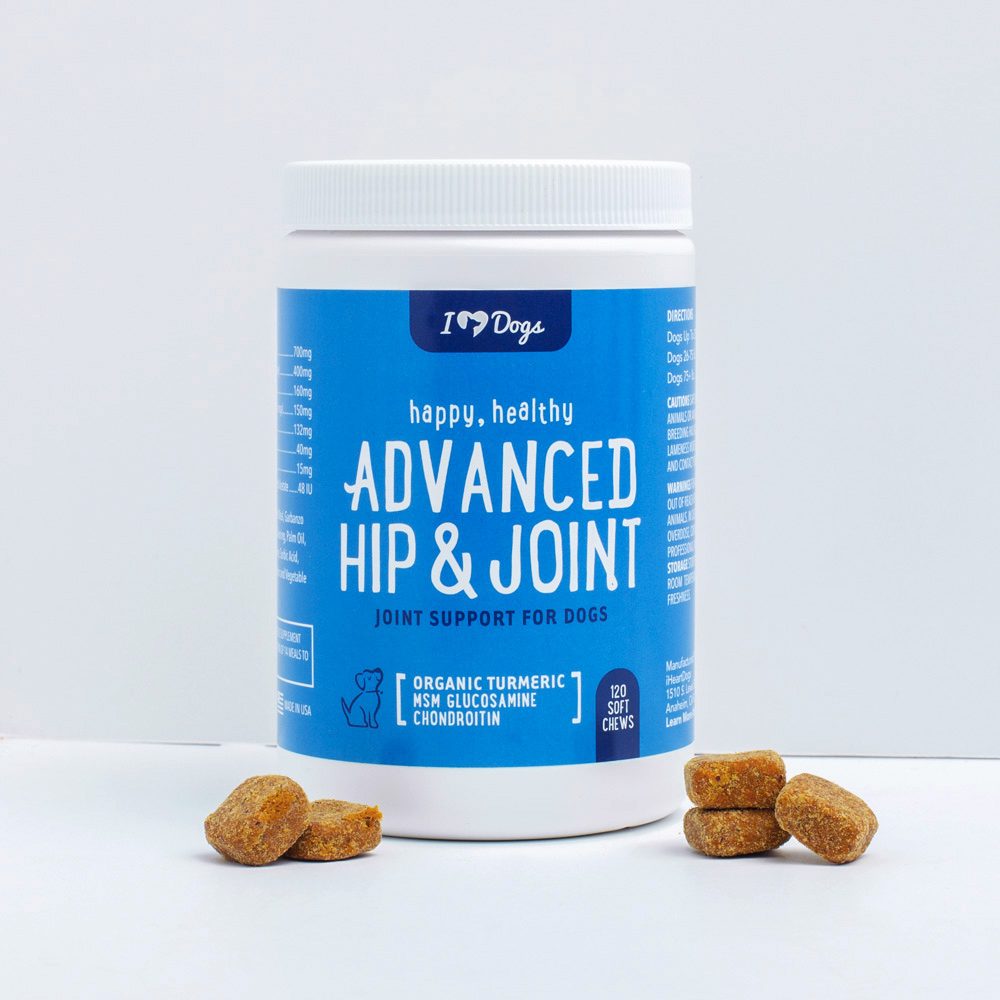
 Toledo, United States.
Toledo, United States.